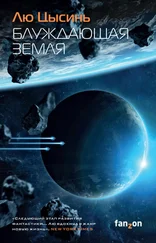“I did have a sense of the power weapons had over you, Xiao Yun, but I didn’t pay much attention. At least until that exercise on the beach range, which involved a machine-gun squadron firing on near-shore targets. It was a difficult exercise, since the targets were rocking on the water and the light machine-gun tripods were liable to sink into the sand on the beach, so the performance of the soldiers was unimpressive. Then the captain in command shouted, ‘You’re pathetic! Look at yourselves! You’re worse than a little girl! Come here, Yun, and show these rejects how it’s done.’ ”
“And so I lay on the sand and fired two magazines, both of them to outstanding success.”
“I watched the flashing rifle pulse steadily in the soft, pale hands of my twelve-year-old girl, the blowback from the chamber tossing your bangs on your forehead, the reflection of the muzzle fire in your child’s eyes, and the look of rapturous excitement on your face… and I was frightened, Xiao Yun, truly frightened. I didn’t know how my daughter had become like that.”
“You dragged me away. Dragged me away amid the cheers of the marines, and furiously told all of them, ‘You are not to let my daughter touch a gun!’ That was the first time I had ever seen you so angry, Dad. From then on you stopped taking me with you to the army, and you took more time to be with me at home, even if it was detrimental to your career. You introduced me to music, art, and literature—at first just for the novelty of it, but later going deep into the classics.”
“I wanted to find a normal aesthetic sense for you, to steer your sensibility away from those frightening tendencies.”
“You did so, Dad. You were the only one who could. None of your colleagues back then had that ability. I’ve always admired your erudition, and I’m grateful beyond words for the amount of effort you devoted to me. But Dad, when you planted that flower in my heart, did you ever stop to look at what the soil was like? There was no way to change it. Yes, growing up, I may have had more appreciation for beauty in music, literature, and art than most girls, but the greatest significance it held for me was the deeper appreciation it gave me for the beauty of weapons. I realized that beauty for most people is characterized by fragility and powerlessness. True beauty needs to be supported by an internal strength, and develop itself through sensations like terror and brutality, from which you can both draw strength and meet your death. In weapons, this beauty is expressed to the full. From then on—it must have been around high school—my fascination with weapons reached the level of aesthetics and philosophy. You shouldn’t feel bad about this change, Dad, since you helped me accomplish it.”
“But Xiao Yun, how did you take that step? Weapons could turn you unfeeling, but did they need to turn you mad?”
“We spent less and less time together after I went to high school, Dad. And then after I joined the army and went to college, we had even fewer opportunities for contact. You have no idea about lots of things that happened during that time. There’s one incident having to do with Mom that I never told you about that had a huge effect on me.”
“With your mom? But she had been dead for over a decade, then.”
“That’s right.”
And then, in the chilly wind of the Gobi, between the sky streaked with clouds and its reflection in the enormous mirror, Ding Yi, Colonel Xu, and General Lin listened to Lin Yun’s story:
“You may be aware that the bees that killed Mom on the southern front weren’t indigenous. They came from a habitat at a far higher latitude. It was strange: the tropical environment of the southern front had a wealth of bee species, so why weaponize this species from the distant north? It was an ordinary bee, not one prone to swarming and stinging, and not particularly toxic. Similar attacks occurred a few more times on the southern front, causing some casualties, but the war ended quickly after that, so it didn’t attract much attention.
“When I did my master’s, I used to hang out on an old BBS, Jane’s Defence Forum. Three years ago I met a Russian woman there—she didn’t reveal anything more about herself, but her language indicated she was no amateur weapons enthusiast, more likely a well-qualified expert. She was in bioengineering—not my field at all, but she had sharp ideas about new-concept weapons, and we got on well. We stayed in contact, often chatting online for hours. Two months later, she told me she had joined up with an international expedition to Indochina to survey the long-term effects of US chemical weapons from the Vietnam War on the region, and she invited me along. I was on break, so I went. When I saw her in Hanoi, she was nothing like I’d imagined: in her forties, thin—nothing of a Russian woman’s stockiness—with that kind of timeless beauty, Eastern and deep-seated, that made me feel warm and comfortable when we were together. With the expedition team, we began an arduous survey of the Ho Chi Minh Trail, where the US army had sprayed defoliants, and the Laotian jungles where traces of chemical weapons had been found. I found her highly professional, always working with a sense of mission and dedication. Her only fault was drinking: she drank to desperation. We were good friends in no time, and on several occasions, after she got drunk, she told me bits of her own experiences.
“I learned from her that as early as the 1960s, the Soviets had established a new-concept weapons institute under the General Staff called the Long-Term Equipment Planning Commission, where she and the man she later married worked in the biochemistry department. I wanted to find out what work the department had done, but I discovered that, even when drunk, she kept a clear head and said not a word about any of it. It was obvious she had spent a long time in key military research organizations. Later, after my persistent questioning, she told me about one project: the agency had once conducted research on a large number of people with so-called psychic abilities to see if they could find NATO nuclear submarines deep in the Atlantic. But this had been declassified long ago, and was the butt of jokes in the world of serious research. Still, it showed that her agency had adopted a dynamic approach, a clear contrast to the ossified thinking of Base 3141.
“The agency was dissolved after the end of the Cold War. Due to the poor conditions of the military in those days, researchers turned to jobs in the private sector, where they immediately ran into problems, and then their Western counterparts exploited the opportunity to trawl for talent. After her husband left the service, he accepted a high-paying position from DuPont, which promised her the same treatment if she was willing to come along, provided she brought her new-concept weapons research with her. They fought bitterly over this, and she laid it out for him: she wasn’t totally divorced from reality, and she wanted a better future, to own a comfortable detached home with a swimming pool, holiday in Scandinavia, and give a good education to their only daughter; and the superlative liberal research conditions were a definite attraction as well. If she had been on a civilian project, or even an ordinary military project, she would not have hesitated at all. But their research had been on new-concept weapons that could not be openly discussed. It was highly advanced technology nearing practical application, and the tremendous military power it held might decide the balance of power in the next century. She was dead set against seeing the fruits of half a lifetime of R&D put to use against her homeland. Her husband said she was being ridiculous. He was from Ukraine, and she was from Belarus. The homeland she had in mind had splintered into many countries, some of which were now enemies of each other.
Читать дальше
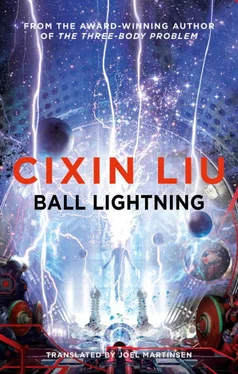




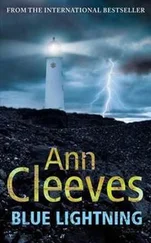
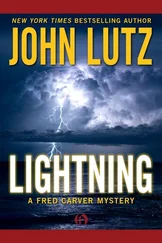
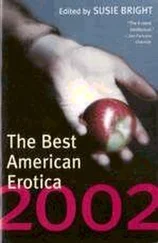
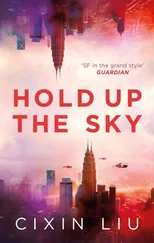
![Лю Цысинь - Эпоха сверхновой [litres]](/books/393110/lyu-cysin-epoha-sverhnovoj-litres-thumb.webp)

